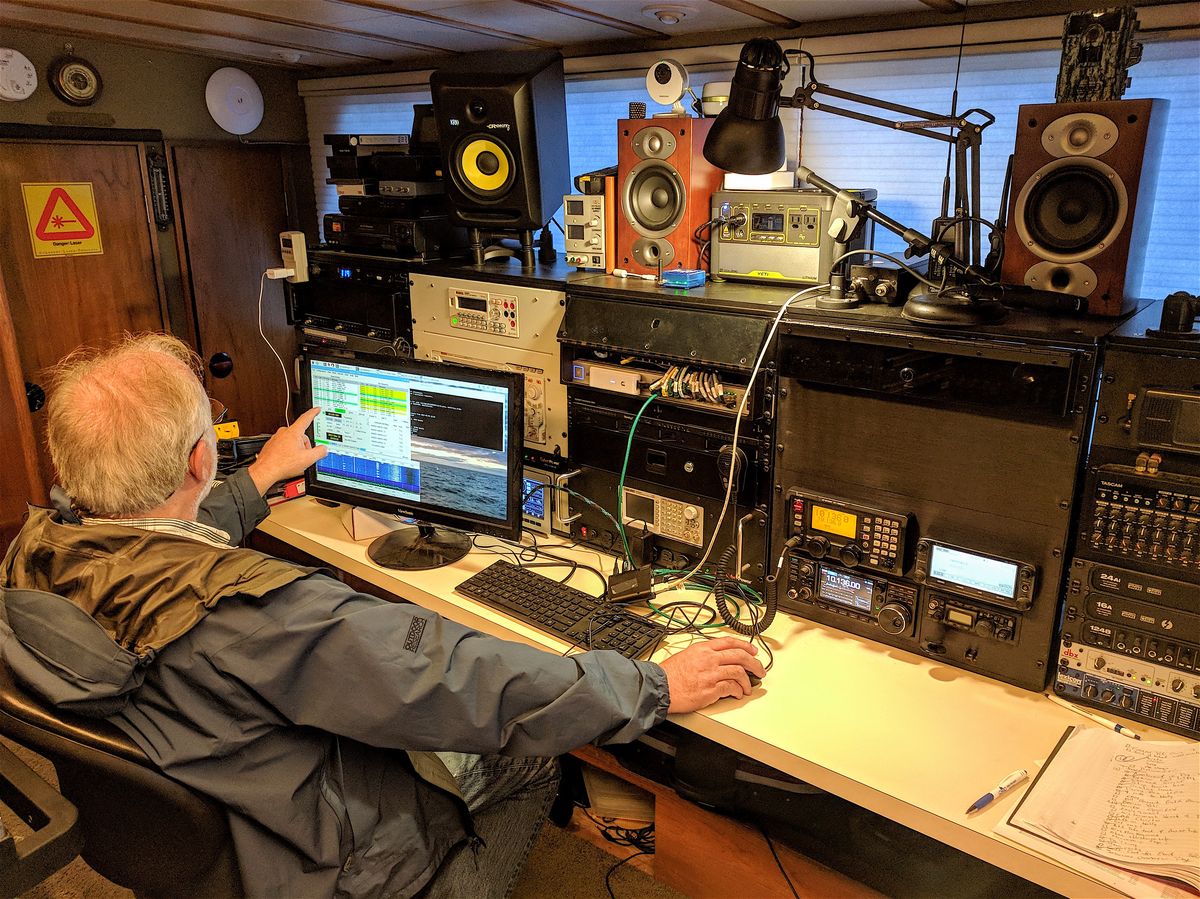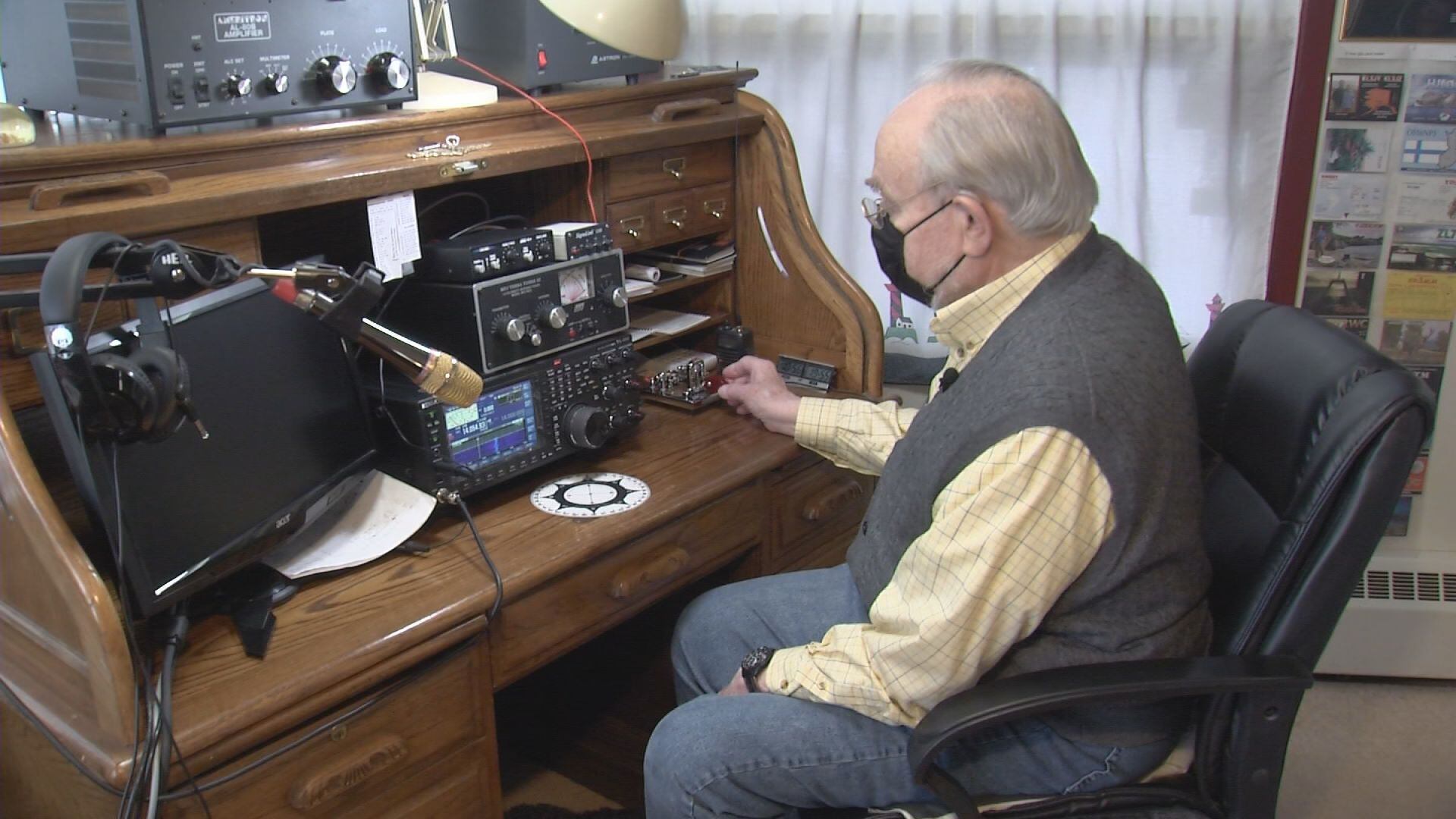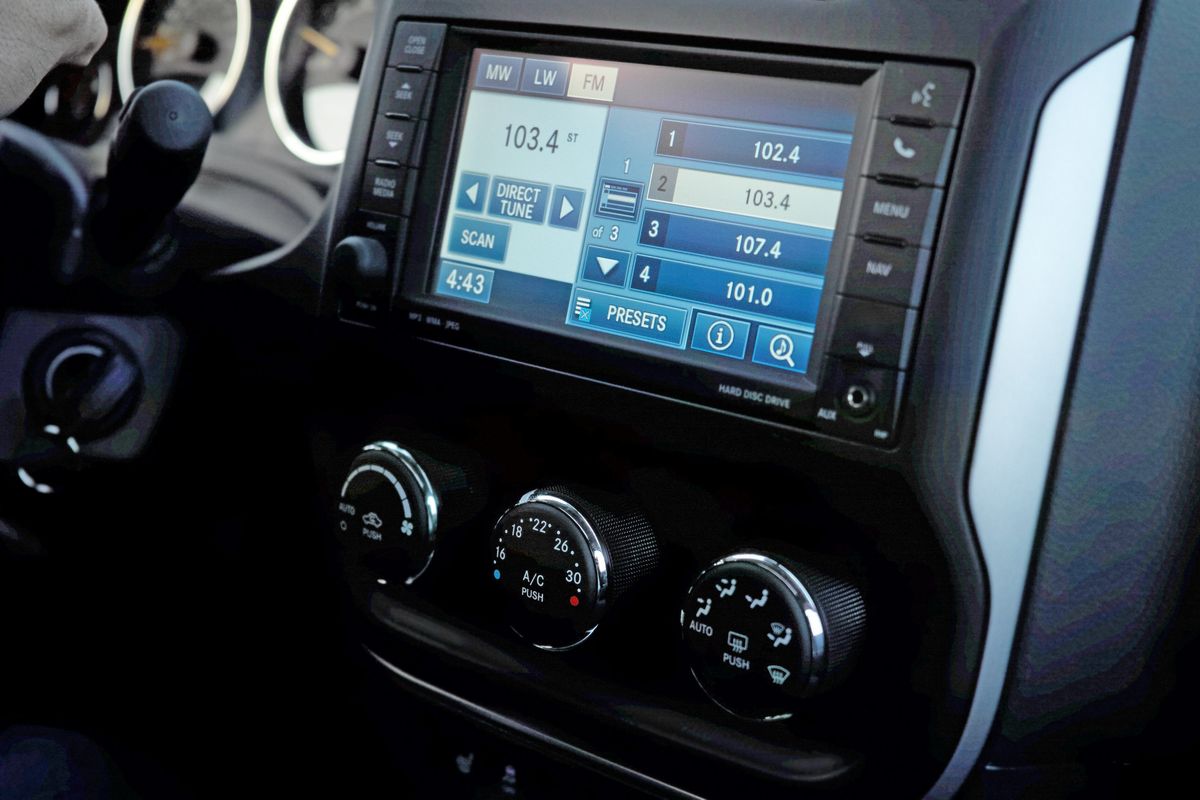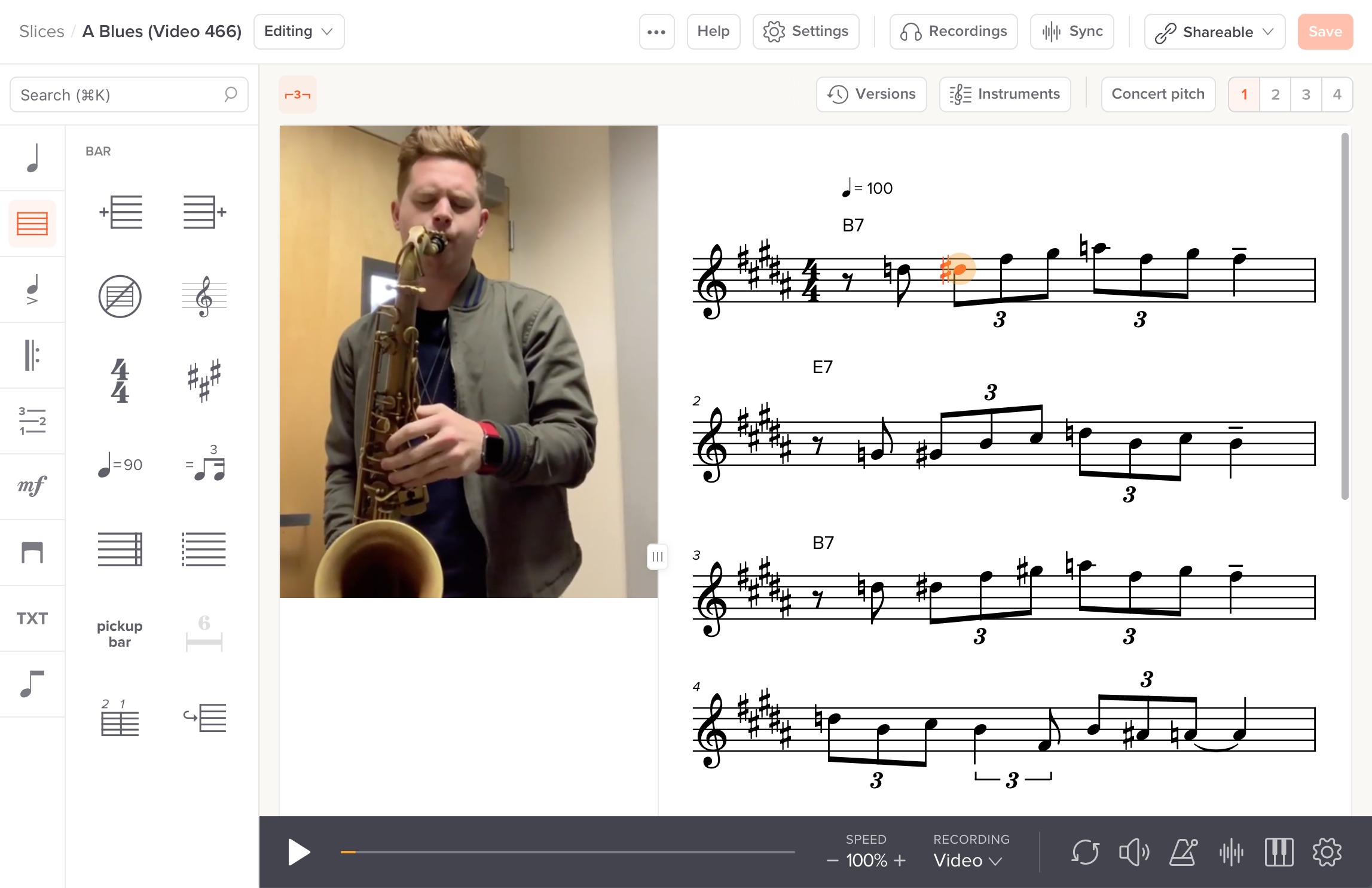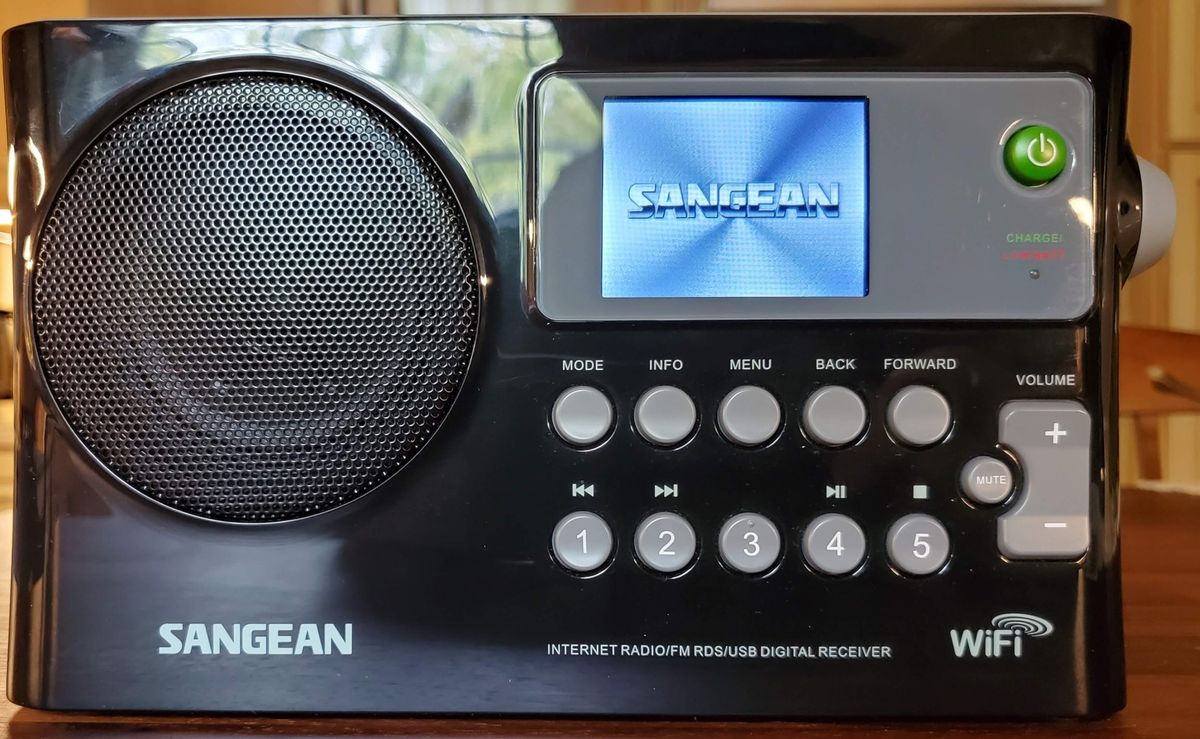Home>Devices & Equipment>Radio>How To Get A Ham Radio License Online
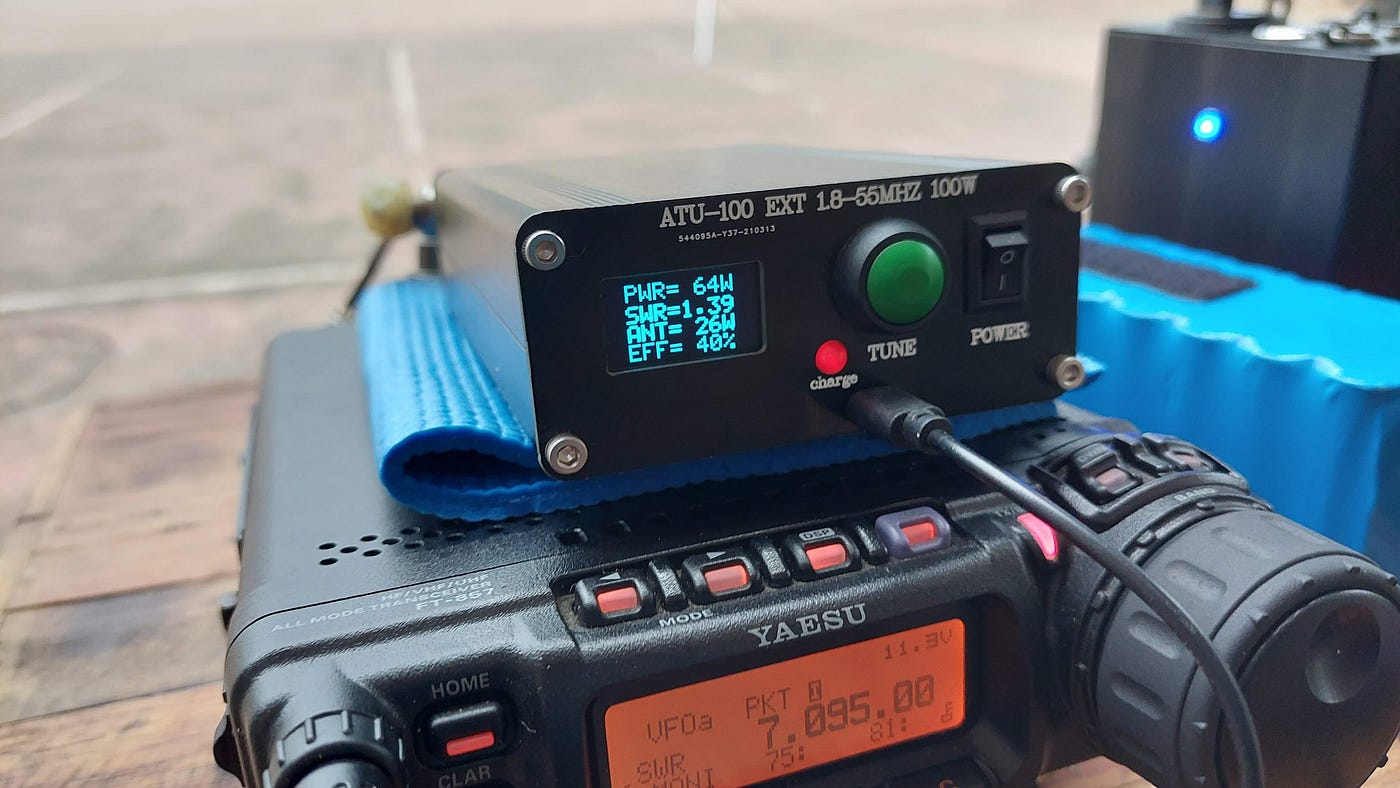

Radio
How To Get A Ham Radio License Online
Modified: January 22, 2024
Learn how to get your ham radio license online and start exploring the world of radio communication. Discover the convenience of obtaining your license from the comfort of your own home.
(Many of the links in this article redirect to a specific reviewed product. Your purchase of these products through affiliate links helps to generate commission for AudioLover.com, at no extra cost. Learn more)
Table of Contents
- Introduction
- Understanding Ham Radio Licenses
- Benefits of Getting a Ham Radio License
- Requirements for Obtaining a Ham Radio License
- Choosing an Online Ham Radio License Course
- Registering for an Online Ham Radio License Course
- Accessing Study Materials for the Online Course
- Studying for the Ham Radio License Exam
- Taking the Ham Radio License Exam Online
- Receiving Your Ham Radio License
- Conclusion
Introduction
Welcome to the world of ham radio! If you’ve ever been fascinated by the idea of communicating with people across the globe using only a radio, then getting a ham radio license is the first step towards making that dream a reality. And the best part? You can now obtain your ham radio license online, making the process more convenient and accessible than ever before.
For those unfamiliar with ham radio, it is a hobby that revolves around amateur radio communication. Ham radio operators, also known as hams, use designated frequency bands to communicate with others locally, nationally, and even internationally. It is a diverse and vibrant community of individuals who share a passion for communication, technology, and emergency preparedness.
Getting a ham radio license opens up a plethora of opportunities. Not only will you gain the ability to communicate with people from all walks of life, but you can also participate in contests, help during emergencies, experiment with different radio equipment, and even work towards obtaining higher-level licenses with increased privileges.
With advancements in technology, the traditional method of attending in-person classes and exams for ham radio licenses is no longer the only option. Online courses have emerged as a popular and convenient way to learn and earn your ham radio license from the comfort of your own home.
In this article, we will explore the process of obtaining a ham radio license online. We will cover the benefits of getting a license, the requirements for obtaining one, and how to choose the right online course for your needs. So, whether you’re an aspiring ham radio operator or simply curious about this dynamic hobby, read on to discover how you can get a ham radio license online.
Understanding Ham Radio Licenses
Before diving into the process of getting a ham radio license online, it’s important to gain a basic understanding of what ham radio licenses entail. In the world of ham radio, licenses are required by the regulatory authorities to ensure responsible and proficient operation of amateur radio equipment.
There are three main levels of ham radio licenses in the United States: Technician, General, and Amateur Extra. Each license level grants specific operating privileges and opens up new opportunities to explore the world of amateur radio. The license you choose to pursue depends on your interests and aspirations within the ham radio community.
The Technician license is the entry-level license and grants access to a wide range of frequencies for local and regional communication. It covers basic operating procedures, radio equipment regulations, and radio wave propagation. With a Technician license, you can communicate using handheld radios, mobile radios, and even set up your own amateur radio station at home.
The General license is the next step up and expands the operating privileges to include national and international communication. It provides access to additional frequency bands and modes, allowing for more diverse and extensive communication. Holders of the General license can also participate in various contests and special events, giving them the opportunity to hone their skills and interact with ham radio enthusiasts worldwide.
The highest level of ham radio license is the Amateur Extra. This license grants extensive operating privileges across the radio spectrum. It allows you to experiment with advanced radio equipment, access exclusive frequency bands, and participate in exclusive events and activities. The Amateur Extra license is often pursued by those who have a deep passion for ham radio and wish to push the boundaries of the hobby.
Obtaining a ham radio license demonstrates your knowledge and proficiency in radio operating procedures, FCC rules and regulations, and basic electronics. It also helps ensure the safety and integrity of the ham radio spectrum by promoting responsible and ethical radio operations.
Now that you have a better understanding of the different ham radio license levels and their corresponding privileges, let’s explore the many benefits of getting a ham radio license.
Benefits of Getting a Ham Radio License
Obtaining a ham radio license comes with a multitude of benefits that go beyond simply being able to communicate with fellow radio enthusiasts. Whether you are interested in emergency communications, technical experimentation, or simply connecting with people around the world, a ham radio license opens up a world of possibilities. Let’s explore some of the key benefits of getting a ham radio license.
1. Communication: One of the primary benefits of getting a ham radio license is the ability to communicate with people from all walks of life. You can connect with local radio operators to exchange information and experiences, participate in nets (scheduled on-air meetings), and even join international ham radio events to make contacts from different countries.
2. Emergency Preparedness: Ham radios have a long history of being crucial in times of emergencies. During natural disasters or other emergencies when traditional communication systems may be disrupted, ham radios provide a reliable means of communication. As a licensed ham radio operator, you can assist emergency response teams, provide support to local communities, and help disseminate valuable information when it is most needed.
3. Technical Exploration: If you have an interest in electronics and radio technology, obtaining a ham radio license allows you to delve deeper into the technical aspects of radio communication. You can experiment with antennas, build your own radio kits, and even explore digital modes of communication. The ham radio community is a wealth of knowledge that can inspire your own projects and spark your curiosity.
4. Community Engagement: Joining the ham radio community provides the opportunity to connect with like-minded individuals who share a passion for communication and technology. You can participate in local ham radio clubs, attend events and contests, and collaborate with others on projects. The community is welcoming and supportive, offering a network of experienced operators willing to share their knowledge and experiences.
5. Lifelong Learning: The world of ham radio is ever-evolving, with advancements in technology and radio regulations. Obtaining a ham radio license is not merely a one-time achievement but the beginning of a lifelong learning journey. You can continue to expand your knowledge, upgrade to higher license levels, and explore new modes and technologies as they emerge.
These are just a few of the many benefits that come with getting a ham radio license. It offers a unique combination of communication, technical exploration, community engagement, and personal growth. Now that you know the advantages, let’s explore the requirements for obtaining a ham radio license.
Requirements for Obtaining a Ham Radio License
Obtaining a ham radio license requires meeting certain requirements set by the regulatory authority, such as the Federal Communications Commission (FCC) in the United States. These requirements ensure that ham radio operators have the necessary knowledge and skills to operate radio equipment responsibly and in compliance with regulations. Let’s take a closer look at the requirements for obtaining a ham radio license.
1. Age: The minimum age requirement for obtaining a ham radio license varies depending on the license level. In the United States, for example, you must be at least 18 years old to obtain an Amateur Extra license, 16 years old for a General license, and there is no age limit for a Technician license. However, there are special provisions for younger applicants, such as the option to operate under adult supervision.
2. Knowledge Test: To demonstrate your understanding of radio operating procedures, regulations, and basic electronics, you are required to pass a knowledge test administered by a Volunteer Examiner (VE). The test consists of multiple-choice questions, and the number of questions and passing score vary depending on the license level you are applying for.
3. Study Material: To prepare for the knowledge test, you will need to study the relevant material. The FCC provides question pools that include the questions and answers that may appear on the exam. There are also numerous study guides and online resources available to help you understand the concepts and prepare effectively.
4. Application Process: Once you feel confident in your knowledge and are ready to take the exam, you will need to submit an application to the FCC or the designated authority in your country. The application may require personal information, examination fee payment, and other necessary details. In some cases, you may have to provide proof of identification and residency.
5. Morse Code: In the past, Morse code proficiency was a requirement for certain ham radio licenses. However, the Morse code requirement has been phased out in many countries. In the United States, for example, Morse code is no longer required for any ham radio license level.
These are the general requirements for obtaining a ham radio license. It is important to familiarize yourself with the specific requirements in your country or region, as they may vary slightly. With the requirements in mind, you can now explore the options available for pursuing an online ham radio license course.
Choosing an Online Ham Radio License Course
With the convenience and accessibility of online learning, aspiring ham radio operators now have the option to obtain their licenses through online courses. Choosing the right online ham radio license course is crucial to ensure you receive the necessary education and preparation for the license exam. Here are some factors to consider when selecting an online course:
1. Accreditation: Look for online courses that are accredited or recommended by reputable ham radio organizations. Accreditation ensures that the course meets certain standards and is recognized within the ham radio community.
2. Course Curriculum: Review the course curriculum to ensure it covers all the necessary topics and knowledge areas required by the license exam. A comprehensive course should include sections on radio operation, rules and regulations, operating procedures, and basic electronics.
3. Interactive Learning: Choose a course that offers interactive learning experiences such as quizzes, practice exams, and hands-on activities. Interactive elements can enhance your understanding and retention of the material.
4. Instructor Expertise: Look for courses led by experienced instructors who have a deep understanding of ham radio operations and licensing. It’s beneficial to learn from someone who can provide practical insights and answer your questions.
5. Online Support: Consider whether the course provides support through forums, discussion boards, or email. Having access to online support can help clarify any doubts or questions you may have during the learning process.
6. User Reviews and Testimonials: Read reviews and testimonials from previous students to gain insights into their experiences with the course. Positive reviews and recommendations can indicate the quality and effectiveness of the course.
7. Flexibility: Consider whether the course offers flexible learning options, allowing you to study at your own pace and schedule. This is important if you have other commitments or prefer a self-paced learning approach.
8. Cost: Compare the costs of different online ham radio license courses. Remember to consider the value offered by each course, including the quality of the material, instructor expertise, and additional resources.
Taking the time to carefully evaluate these factors will help you choose the online ham radio license course that aligns with your needs and learning preferences. Once you have selected a course, the next step is to register and gain access to the study materials.
Registering for an Online Ham Radio License Course
Registering for an online ham radio license course is a straightforward process that typically involves a few simple steps. Follow these guidelines to ensure a smooth registration process:
1. Research Course Options: Conduct thorough research to find online ham radio license courses that meet your requirements. Consider factors such as accreditation, course curriculum, instructor expertise, and user reviews to make an informed decision.
2. Visit the Course Website: Once you have identified a suitable online course, visit its official website to gather more information about the registration process. Familiarize yourself with the course details, pricing, and any additional requirements or prerequisites.
3. Create an Account: Many online courses require you to create an account before you can proceed with registration. This account will serve as your access point to the course materials and resources.
4. Fill in the Registration Form: Complete the registration form provided on the course website. This form will typically ask for your personal details, such as your name, contact information, and sometimes even your ham radio call sign (if you already have one).
5. Select a Course Package: Depending on the course, there may be different packages or options available for registration. Choose the package that best suits your needs, whether it’s a basic course package or one that offers additional resources and support.
6. Make the Payment: After selecting the desired package, proceed to the payment stage. Online ham radio license courses usually require payment before granting access to the course materials. Ensure that the payment method provided is secure and reliable.
7. Access Course Materials: Once the registration and payment process is complete, you will typically receive login credentials or access to the course materials via email. Follow the instructions provided to log in to the course platform and begin your learning journey.
8. Familiarize Yourself with the Course Platform: Take some time to explore the course platform and familiarize yourself with its features and navigation. This will help you make the most of the online learning experience.
9. Start Learning: With access to the course materials, you can now begin studying for your ham radio license. Follow the course structure and recommended study plan to progress through the material effectively.
Remember to reach out to the course provider if you encounter any issues or have questions during the registration process. They will be able to assist you and provide any necessary guidance. Once you have access to the study materials, it’s time to dive into studying for the ham radio license exam.
Accessing Study Materials for the Online Course
Once you have registered for an online ham radio license course, accessing the study materials is the next step in your journey towards obtaining your license. Online courses typically provide various resources and study materials to help you prepare for the license exam. Here’s a guide on how to access and make the most of these study materials.
1. Course Platform: Log in to the course platform using the credentials provided during the registration process. This is where you will find all the study materials, resources, and modules organized for easy access.
2. Course Syllabus: Review the course syllabus or outline to get an overview of the topics that will be covered in the course. This will give you an idea of the sequence of study and help you prioritize your learning.
3. Video Lectures: Online courses often include video lectures or instructional videos. These lectures are presented by experienced instructors and cover essential concepts, practical examples, and important tips for the license exam. Watch these videos to gain insights and reinforce your understanding of the material.
4. Textbooks and Handouts: Many online courses provide digital textbooks or handouts in PDF format. These materials contain comprehensive information about ham radio operations, regulations, and technical aspects. Download and save these resources to your device for offline access and convenient reference while studying.
5. Practice Exams and Quizzes: Practice exams and quizzes are valuable study tools that allow you to test your knowledge and assess your readiness for the license exam. Online courses often provide a range of practice questions, allowing you to become familiar with the format and content of the exam.
6. Discussion Forums or Q&A Sessions: Some courses offer discussion forums or Q&A sessions where you can interact with instructors and fellow students. Participating in these forums allows you to ask questions, seek clarification, and learn from the experiences and insights of others.
7. Study Guides and Cheat Sheets: Many online courses provide study guides or cheat sheets that condense and summarize key information. These materials act as quick references and help you review important concepts efficiently.
8. Supplementary Resources: Explore any additional resources provided by the course, such as recommended readings, external websites, or video tutorials. These resources can broaden your understanding and provide alternative perspectives on ham radio operations.
9. Study Schedule: Create a study schedule or plan to ensure you cover all the necessary material. Divide your study time into manageable chunks and set specific goals for each session to stay on track and make steady progress.
By accessing and utilizing these study materials effectively, you will be well-prepared for the ham radio license exam. Take advantage of all the resources and opportunities provided by the online course to enhance your knowledge and confidence in operating ham radio equipment.
Studying for the Ham Radio License Exam
Studying for the ham radio license exam is a crucial step towards achieving your goal of becoming a licensed ham radio operator. By dedicating time and effort to studying, you can build a solid foundation of knowledge and increase your chances of passing the exam. Here are some tips to help you effectively prepare for the exam:
1. Understand the Exam Structure: Familiarize yourself with the structure of the license exam. Understand the number of questions, time limits, and passing scores. This will help you gauge the level of preparation required.
2. Review the Exam Topics: Thoroughly review the topics that will be covered in the exam. Study resources such as textbooks, online materials, and guides to ensure you have a good grasp of the concepts and regulations related to ham radio operation.
3. Create a Study Plan: Develop a study plan that encompasses all the exam topics. Break down your study sessions into manageable chunks and allocate sufficient time for each topic. Consider dedicating more time to areas where you need additional reinforcement.
4. Practice with Sample Questions: Practice with sample questions to familiarize yourself with the format and content of the exam. Many online courses provide practice questions or question banks, which can help you assess your understanding and identify areas that require further study.
5. Take Online Practice Exams: Online practice exams simulate the actual exam environment and allow you to gauge your readiness. Time yourself as you would during the real exam to develop a sense of pacing and to build confidence in completing the exam within the allotted time.
6. Join Study Groups or Forums: Engage in discussions with fellow aspiring operators through study groups or online forums. Share study materials, ask questions, and learn from the experiences and knowledge of others. Collaborating with like-minded individuals can enhance your learning experience.
7. Utilize Study Guides and Flashcards: Study guides and flashcards are effective tools for reviewing key concepts and memorizing important information. Create your own flashcards or use digital flashcard apps to reinforce your understanding of terminology, formulas, and regulations.
8. Seek Clarification: If you come across any confusing or unclear topics during your study, seek clarification from instructors or more experienced ham radio operators. Join online communities or reach out to local amateur radio clubs for guidance and support.
9. Review and Revise: Regularly review and revise the material you have studied to reinforce your understanding and ensure retention. As the exam date approaches, focus on areas of weakness and prioritize your study efforts accordingly.
Remember, effective studying is about consistency and dedication. Allocate regular study time, stay organized, and maintain a positive mindset throughout your preparations. By following these tips, you will be well-prepared for success on the ham radio license exam and take a step closer to joining the vibrant world of amateur radio.
Taking the Ham Radio License Exam Online
With advancements in technology, it is now possible to take the ham radio license exam online, providing convenience and flexibility for aspiring operators. Taking the exam online eliminates the need for in-person sessions and allows you to complete the exam from the comfort of your own home. Here’s what you need to know about taking the ham radio license exam online:
1. Find an Online Exam Session: Research and locate an online exam session that suits your schedule. Look for reputable organizations or volunteer examiner teams that offer online exam options. Ensure that the exam session aligns with the license level you are pursuing.
2. Technical Requirements: Before the exam, ensure that you have the necessary technical requirements. This typically includes a reliable internet connection, a computer with a webcam and microphone, and a compatible web browser. Check the specific requirements outlined by the exam administrator to avoid any last-minute issues.
3. Exam Procedures and Rules: Familiarize yourself with the exam procedures and rules set by the exam administrator. Understand the guidelines for accessing the exam platform, required identification, exam duration, and any permitted materials during the exam. Adhere to the rules to maintain the integrity of the exam process.
4. Test Setup and Environment: Set up a quiet and distraction-free environment for the exam. Ensure that you have a well-lit space and a clutter-free desk. Close unnecessary applications and windows on your computer to maintain focus during the exam.
5. Exam Security and Proctoring: Online exams often employ security measures such as remote proctoring to ensure the integrity of the exam process. Be prepared to follow any proctoring instructions provided, which may include verifying your identity, monitoring your exam session via webcam, or using specialized software for exam invigilation.
6. Answering the Exam Questions: Read each question carefully and take your time to provide accurate and thoughtful answers. Pay attention to any specific instructions or requirements for answering questions, such as selecting multiple-choice options or entering numeric responses.
7. Submitting the Exam: Once you have completed the exam, review your answers to ensure accuracy. Follow the instructions provided to submit the exam and any supporting documents, if required. Double-check that you have submitted all necessary files before closing the exam platform.
8. Exam Results and Feedback: After completing the exam, you will receive your results from the exam administrator. In some cases, you may receive immediate feedback on whether you have passed or failed. If you are successful, you can celebrate your accomplishment and move forward with obtaining your ham radio license.
9. Retaking the Exam (if needed): If you do not pass the exam on your first attempt, you may have the opportunity to retake it. Review your exam results and identify areas where you need improvement. Utilize the feedback provided to focus your study efforts and prepare for a successful retake.
Taking the ham radio license exam online provides convenience and flexibility, allowing you to pursue your license from any location. Ensure that you are well-prepared, follow the exam procedures, and approach the exam with confidence. With successful completion of the exam, you will be one step closer to receiving your ham radio license and joining the community of amateur radio operators.
Receiving Your Ham Radio License
After successfully completing the ham radio license exam, you will eagerly await the receipt of your ham radio license. The process of receiving your license may vary depending on your country or region. Here’s what you can expect:
1. Exam Results: Shortly after completing the exam, you will receive your exam results from the exam administrator. This may be in the form of an immediate pass or fail notification or a subsequent email or mailed notification.
2. License Application: In most cases, you are required to submit a license application to the regulatory authority in your country or region. This application may be available online or require submission through traditional mail. The application typically includes your personal information, call sign preferences (if applicable), and any required fees.
3. Proof of Identification: Along with your license application, you may be required to provide proof of identification. This can include a copy of your government-issued ID, such as a driver’s license or passport, to verify your identity.
4. License Processing: Once your license application is submitted, it will go through a processing period to verify the information provided and conduct any necessary background checks. This process can vary in duration depending on the regulatory authority and workload.
5. License Issuance: Once your application is approved, you will be issued your ham radio license. This may be in the form of a physical license card or a digital license document, depending on the regulations in your country or region.
6. Call Sign Assignment: Along with your license, you will also receive a call sign, which is a unique combination of letters and numbers used to identify you on the airwaves. The specific format and assignment process will be determined by your regulatory authority.
7. License Renewal: Ham radio licenses are typically valid for a specific period, such as 10 years, after which they need to be renewed. Be aware of the expiration date of your license and any renewal requirements to ensure uninterrupted operation.
8. License Privileges: Your ham radio license grants you certain privileges and operating rights based on the license level you attained. These privileges allow you to access specific frequency bands, use certain modes of communication, and participate in activities within the scope of your license.
9. Registering your License: Some countries or regions require you to register your ham radio license with the regulatory authority. This allows them to maintain a record of licensed operators and ensures compliance with any operating regulations.
Receiving your ham radio license marks an exciting milestone in your journey to becoming a licensed ham radio operator. It grants you the privileges and rights to explore the world of amateur radio while adhering to the regulations set forth by the regulatory authority in your country or region. Remember to familiarize yourself with the operating rules and guidelines associated with your license to ensure a safe and enjoyable ham radio experience.
Conclusion
Congratulations on completing your journey to obtaining a ham radio license! By successfully passing the license exam and receiving your license, you have unlocked a world of possibilities in the amateur radio community. From communication and emergency preparedness to technical exploration and community engagement, becoming a licensed ham radio operator opens up a range of exciting opportunities.
Throughout this article, we explored the process of getting a ham radio license online. We discussed the benefits of obtaining a license, the requirements for getting licensed, choosing an online course, registering for the course, accessing study materials, studying for the exam, taking the exam online, and finally, receiving your license.
Remember that getting a ham radio license is just the beginning of your journey. It provides you with the foundation to explore and learn more about the fascinating world of amateur radio. Engage with other operators, participate in contests and special events, and continue expanding your knowledge and skills in radio communication.
Ham radio is a dynamic and ever-evolving hobby that offers valuable connections, learning experiences, and opportunities to contribute to local communities and emergency response efforts. Embrace the challenges and joys that come with being a licensed ham radio operator, and never stop exploring new possibilities within this wonderful community.
So, what are you waiting for? Start your ham radio journey today, obtain your license, and join the global network of amateur radio enthusiasts who are passionate about communication, technology, and making a difference in the world.

